Nomad Foods: Digital Tech, Legal Standards, and F&B Skills Report
VerifiedAdded on 2022/11/29
|10
|516
|75
Report
AI Summary
This report provides an analysis of the application of digital technology within the food and beverage (F&B) industry, using Nomad Foods as a case study. It examines the integration of digital tools, such as those related to artificial intelligence, to improve operational efficiency, cost reduction, and accessibility. The report outlines the professional skills required in the F&B sector, including customer service and bartender skills, as practiced within Nomad Foods. Furthermore, it details the legal requirements and regulatory standards that F&B outlets must adhere to, focusing on food safety regulations, hygiene practices, and employee safety, including COSHH regulations and cleaning schedules. The report emphasizes the importance of maintaining high standards in order to ensure the safety and quality of products, and concludes by highlighting the employment opportunities and skills required in the industry.
1 out of 10
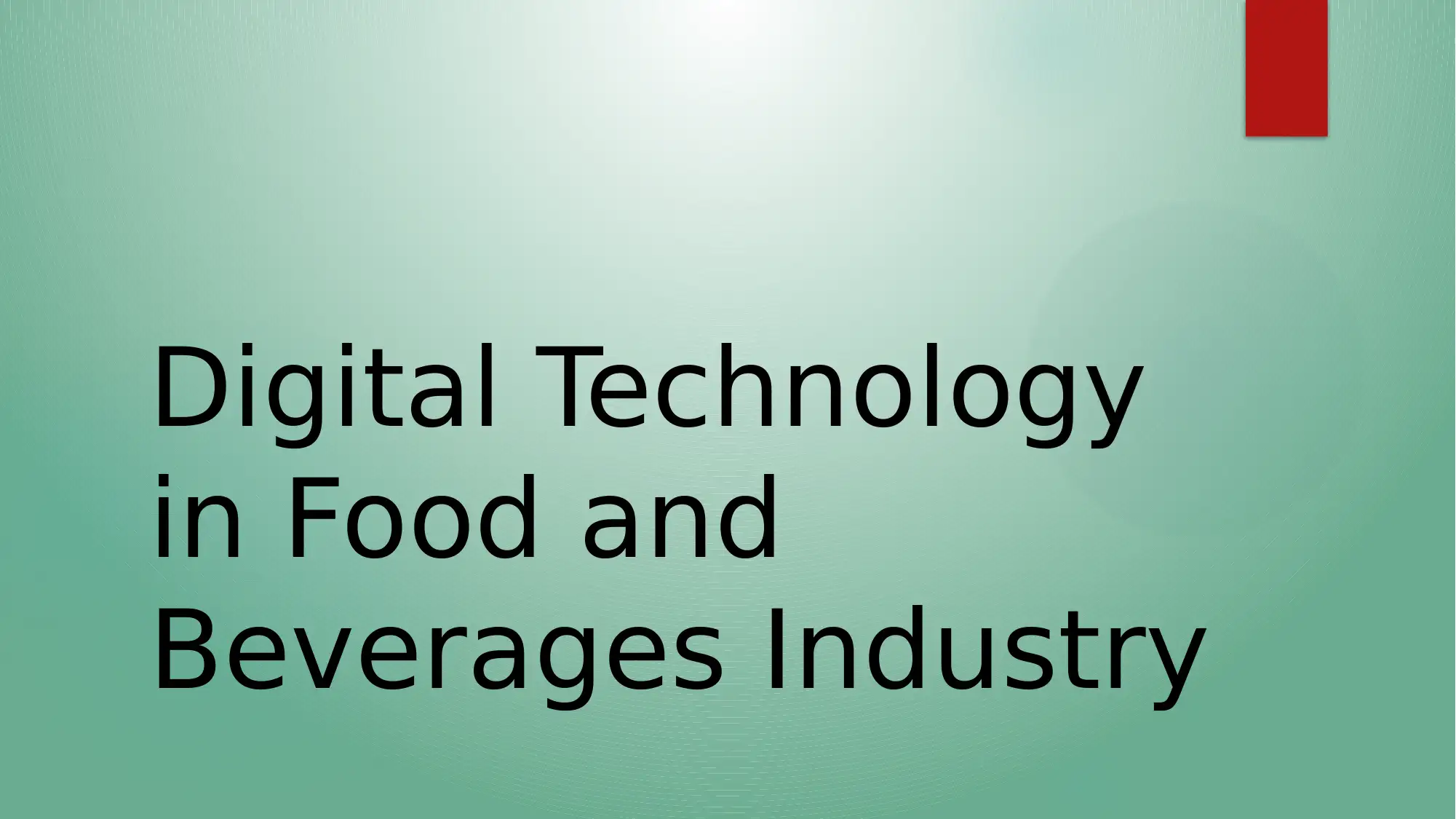

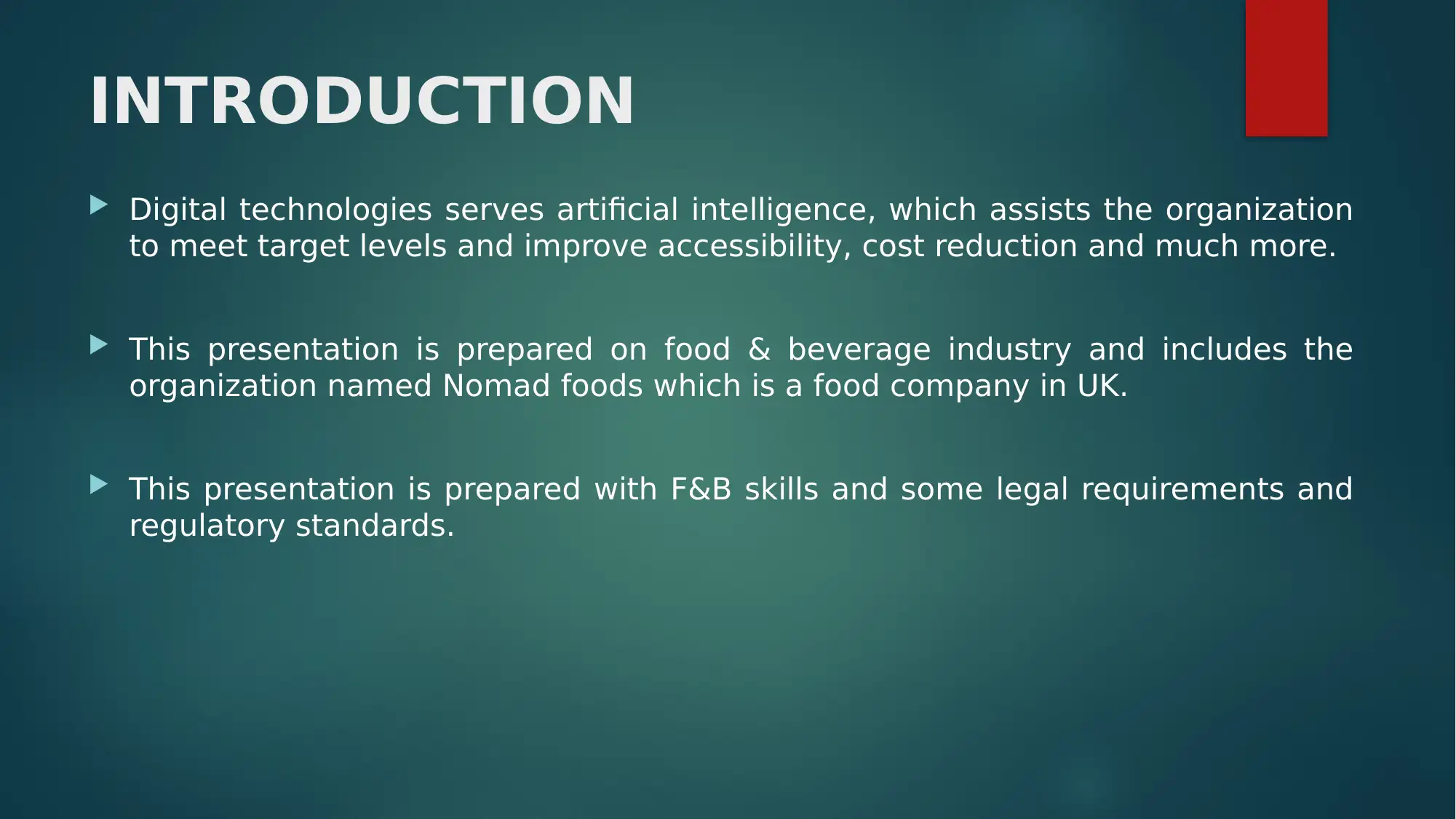

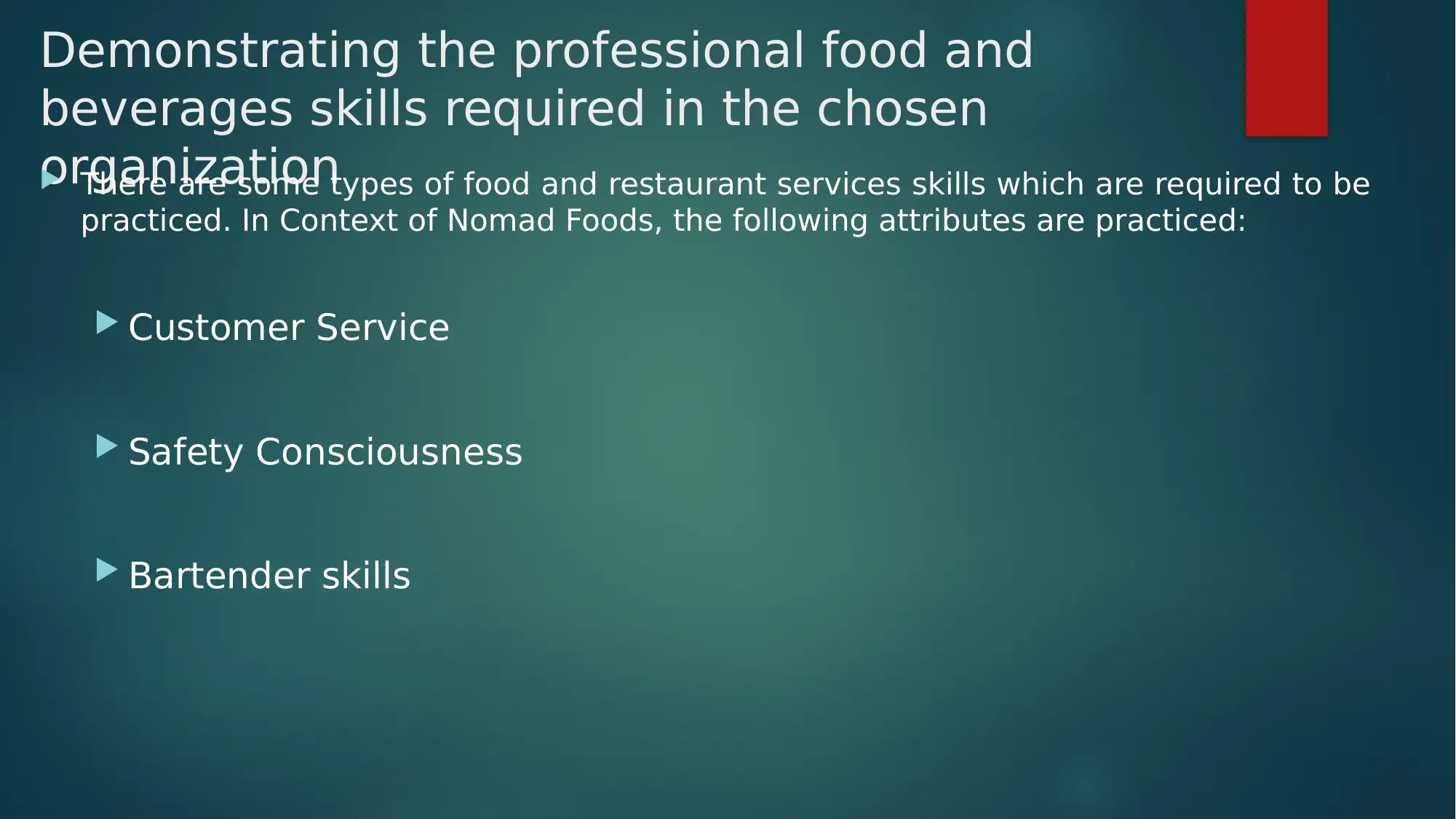
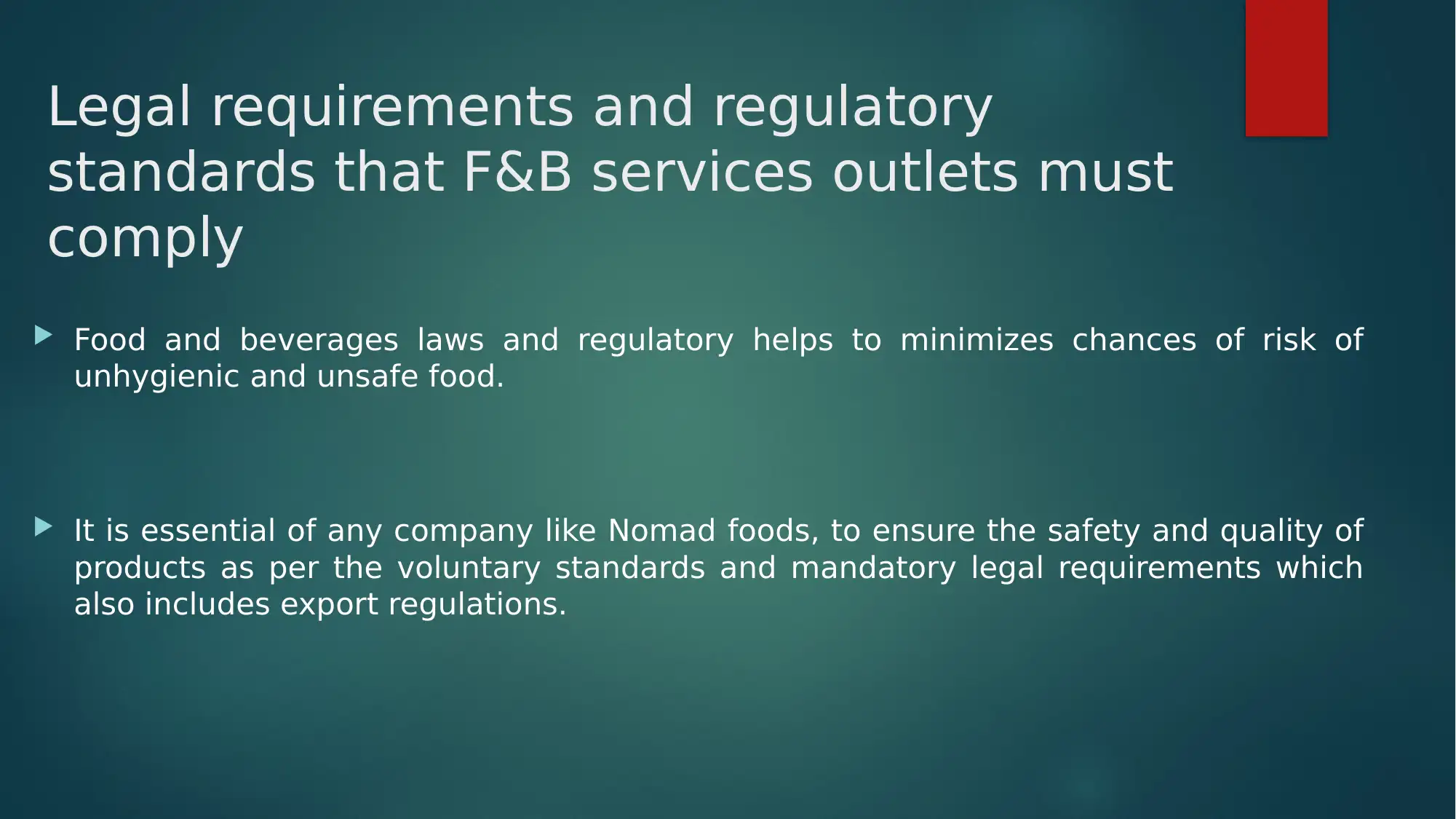
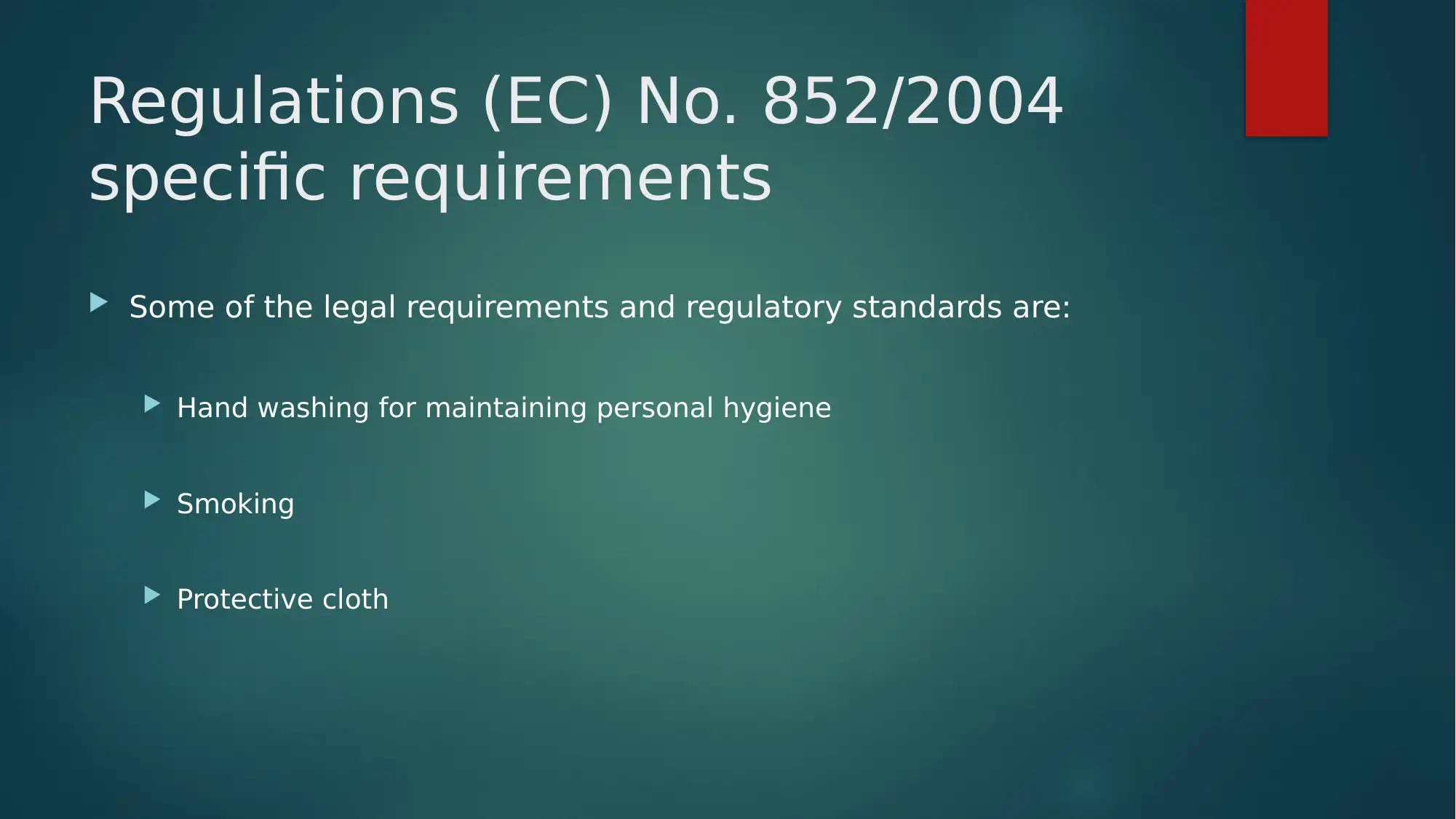
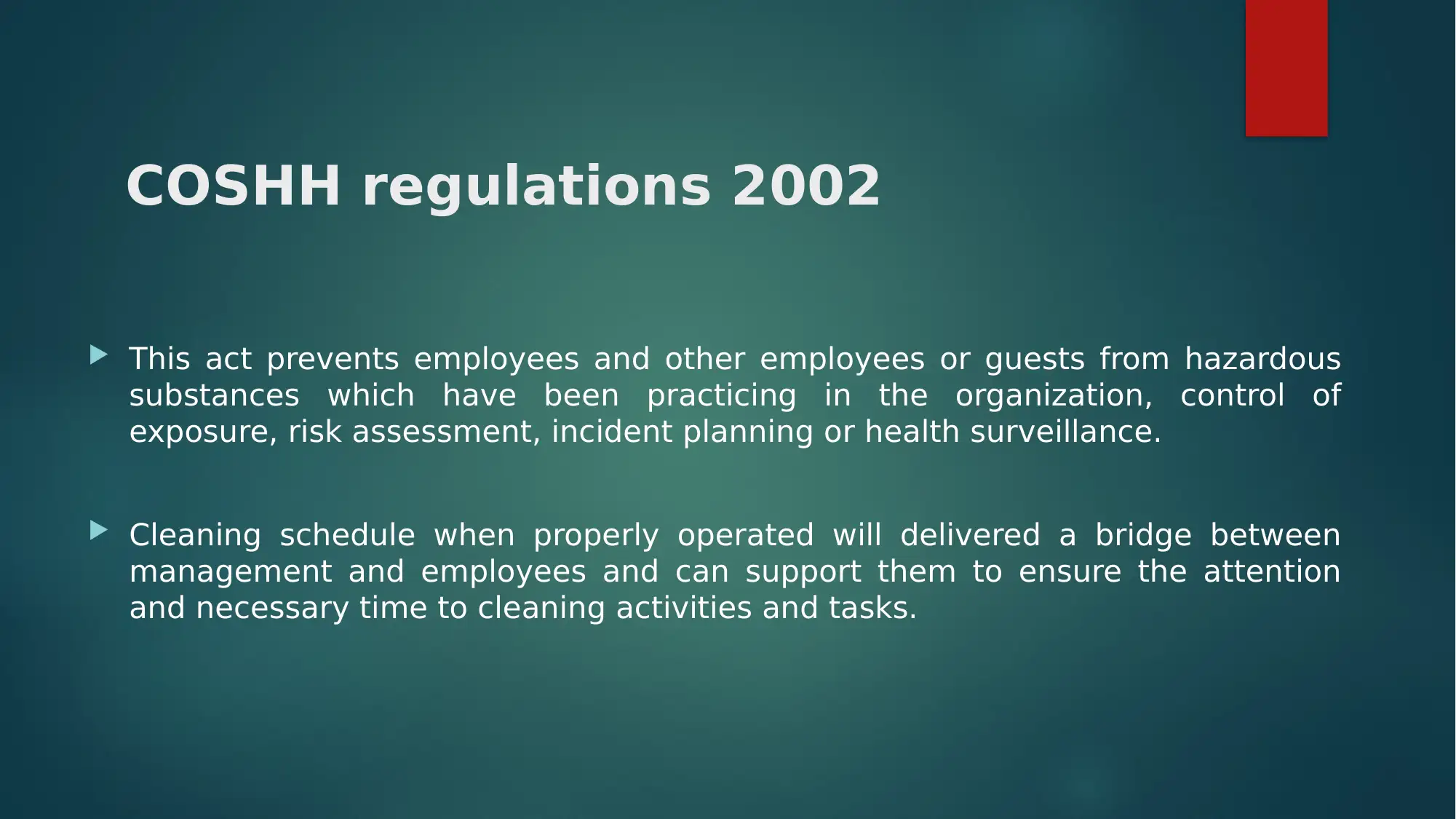
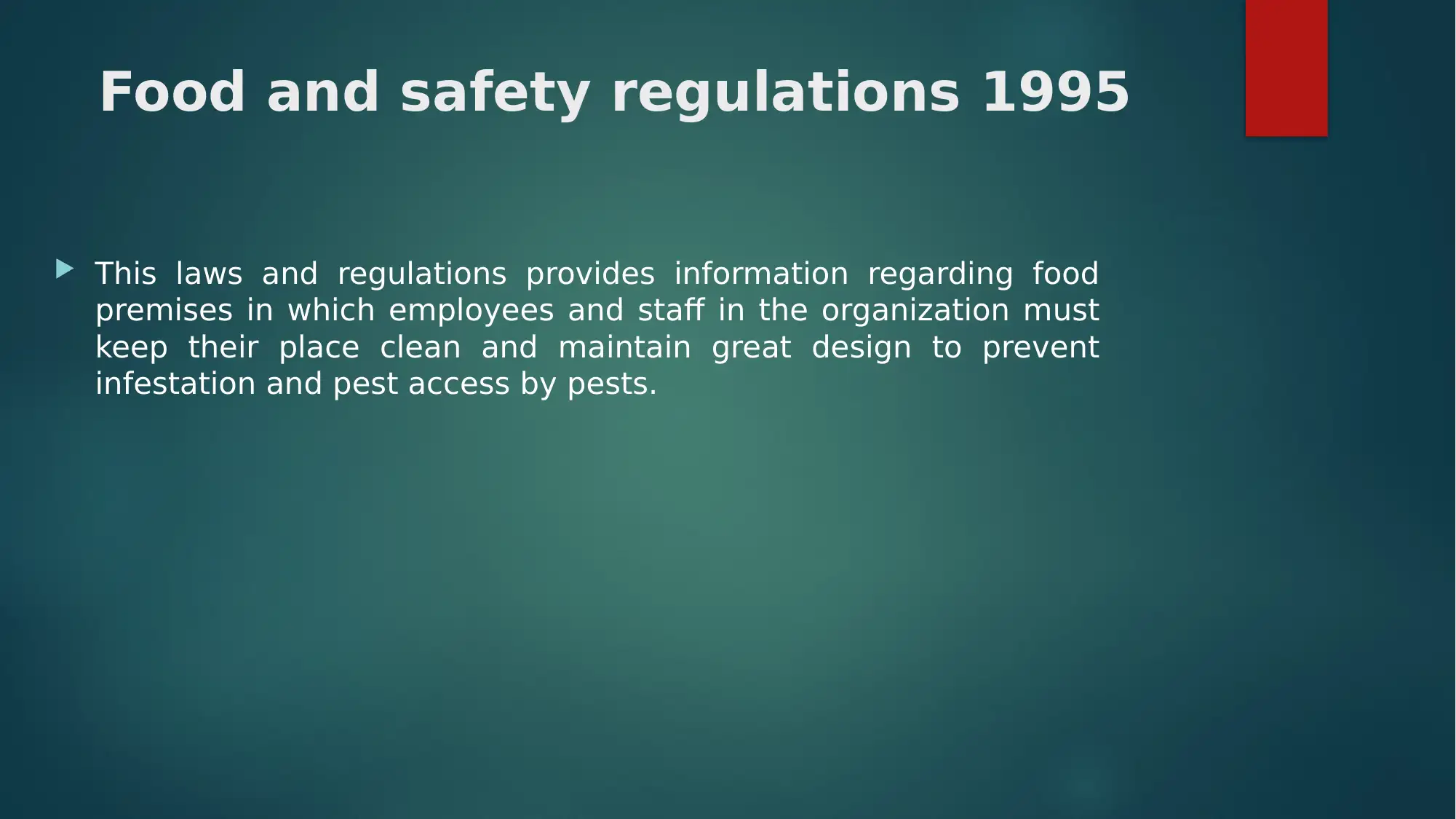
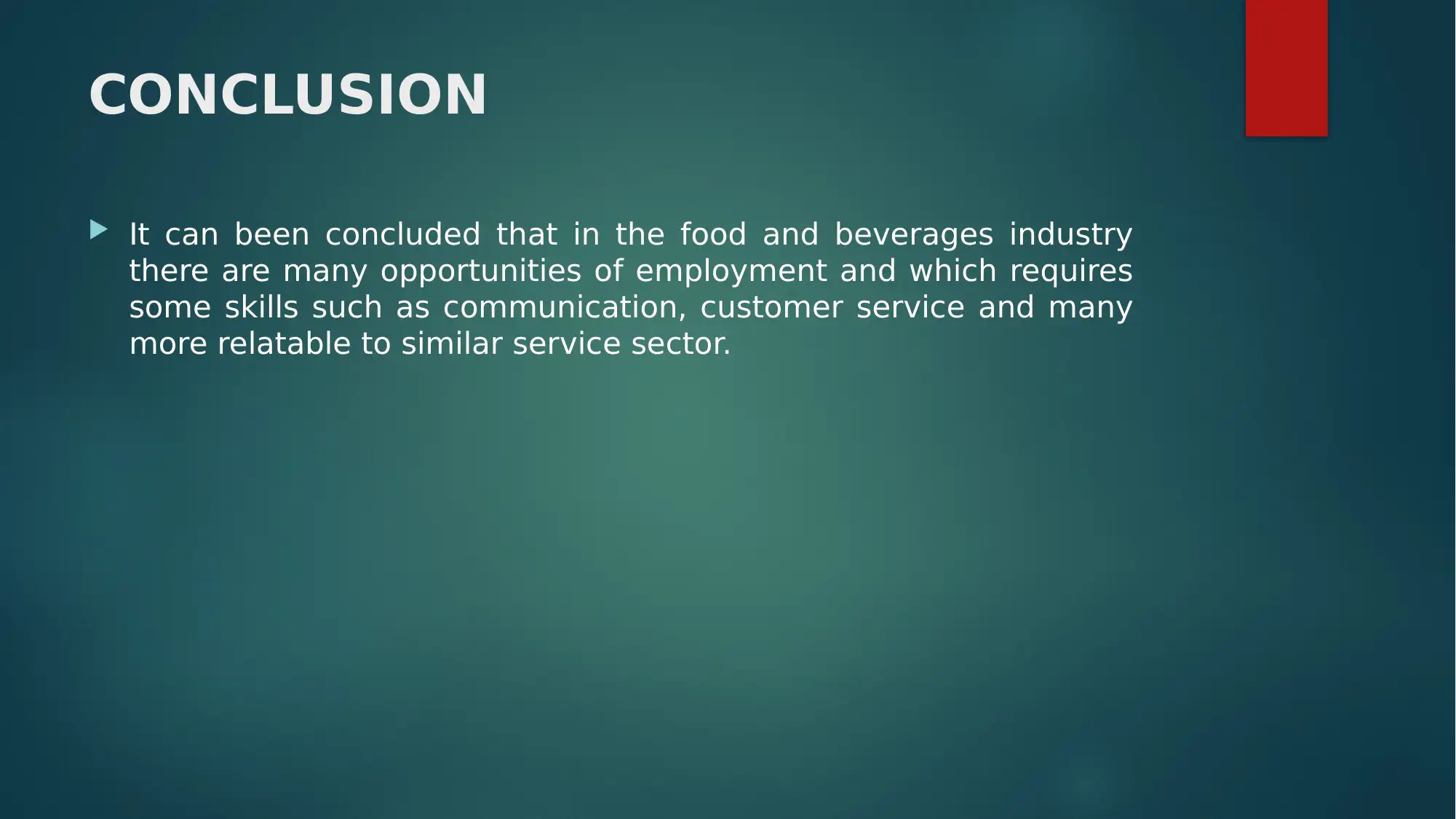
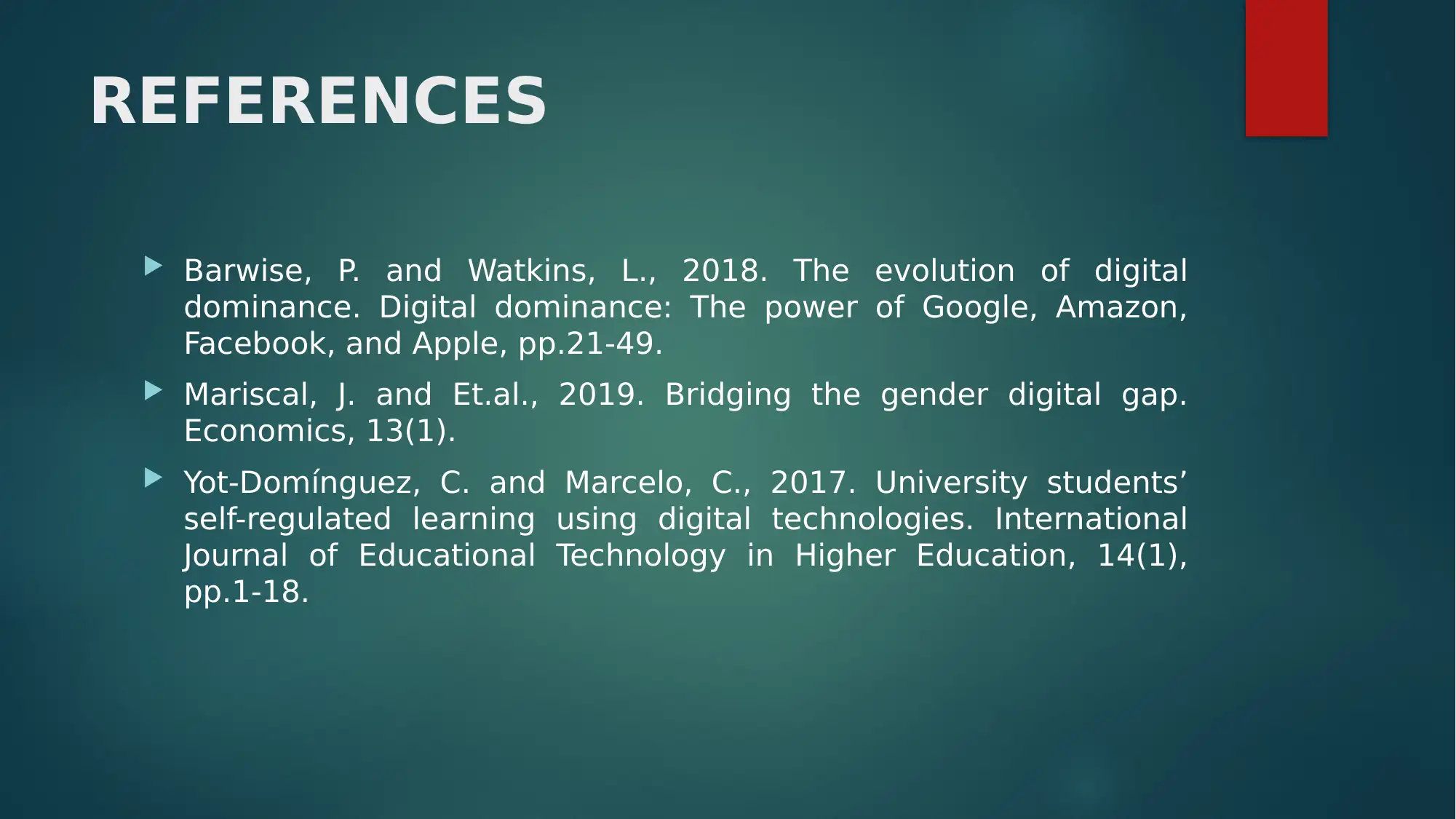






![[object Object]](/_next/static/media/star-bottom.7253800d.svg)